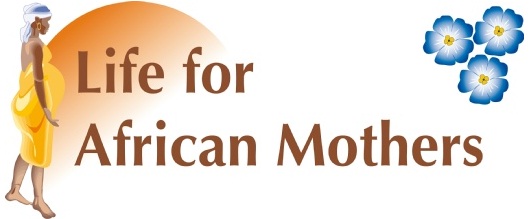- For the past four years, the charity Life for African Mothers has sent vital medication to Somaliland which has one of the highest child mortality rates in the world. The charity’s chief executive officer Angela Morgan visited the country with Fowzia Ali from Hayaat Women Trust and mental-health worker Maria Granville. They told Alison Sanders what they made of the country’s maternal and mental health services
LIFE for African Mothers has been supplying medication to Somaliland for the past four years after it was approached by the country’s diaspora community in Cardiff.
The charity aims to make birth safer in Sub-Saharan Africa by providing medication to treat eclampsia and postpartum haemorrage. It currently provides medication to countries including Chad, Liberia, Sierra Leone, northern Nigeria, eastern Uganda and eastern Congo.
Its chief executive officer Angela Gorman planned to visit Somaliland in 2008 to carry out a needs-assessment but this was cancelled by a serious security threat when 29 people were killed by a suicide bomber in the capital Hargeisa.
She sought advice from Dr Charles Ameh at the Liverpool School of Tropical Medicine who regularly travels to Hargeisa to provide clinical skills training.
The Trustees of Life for African Mothers decided to start shipping the medication to Somaliland and within a week the charity was told of how a woman who was in a coma after suffering from severe eclampsia had been saved by the charity’s medication.
Angela had the opportunity to visit Somaliland to see how the medication was working for herself when Hayaat Women Trust, based in Cardiff, secured a grant from the Wales for Africa Community Links Fund to cover the costs of a visit.
Angela joined Fowzia Ali, chairwoman of Hayaat Women Trust, and Maria Granville, who is a mental-health worker with the Cardiff and Vale University Local Health Board, in December for a 13-day trip.
One of the trip’s aims was to carry out a needs-assessment to explore the possibility of a link between Hargeisa Group Hospital’s mental health unit and the Cardiff and Vale University Local Health Board facilitated by Hayaat Women Trust.
Fowzia said: “The stigma is worse over there. Even if a person gets better, they’re still seen as never being fully recovered. People try to hide it in their families and so sometimes they don’t seek help. Educating people and raising awareness and training is therefore important.”
The group’s visit included a meeting with the minister of health who expressed grave concern about the child mortality rates which are among the highest in the world with 50% of deaths being neonatal.
The group started their trip by visiting Hargeisa Group Hospital in the Somaliland capital of Hargeisa and donated two suitcases of baby clothes to the maternity unit.
Angela said the maternity unit was clean and pretty well equipped but she said the mental health unit was a “rude awakening”.
She said: “The labour ward was clean and seemed to be well resourced. The mental health unit was the final stop and it was clear that major work was needed to improve the environment for the patients. We met with the senior staff and were told that they had received no training in the care of patients with mental illness, particularly the management of violent patients and how to protect themselves. One member of staff had returned to work following a serious assault when her skull was broken, leaving her with a significant scar and facial disfigurement. We spent a long time at the unit talking to patients.”
The group visited several of the hospitals which receive medication from Life for African Mothers and which is distributed by the Somaliland Nursing and Midwifery Association where they personally delivered the misoprostol to three of the hospitals.
One of their visits was to Gabiley Hospital which is around 45 minutes from Hargeisa and was built using funds raised by the UK diaspora community.
Angela said they were told by the junior doctor that the medications from the charity are the only source of magnesium sulphate and misoprostol available to them.
They also visited Salahiley Hospital which was around 90 minutes away from Hageisa.
Angela said: “One of the reasons we had been asked to visit Salahiley was that two years ago, a woman died in childbirth and in realising that she was going to die, asked that something be done to prevent this happening again.” Funds were raised from the diaspora community and a new hospital was built where she died.
They visited the Edna Adan Hospital which was the vision of the wife of the country’s former president who even helped mix the concrete for the building.
While they were there, Angela, Fowzia and Maria also set up an awareness-raising event which included the discussion of some sensitive issues relating to maternal and mental health.
Angela said she asked the group the question: “If 300,000 men were dying every year, would someone have sat up and done something?”
She said: “I wanted people to start thinking that there is an alternative to it being acceptable for women in developing countries to die. Once we can get over that the women don’t have to die then we’re on our way to succeeding.”
Maria has described the trip as a “life changing experience” and has given talks to her NHS colleagues since her return.
For information, see www.lifeforafricanmothers.org and Hayaat Women Trust on Facebook.

No comments:
Post a Comment